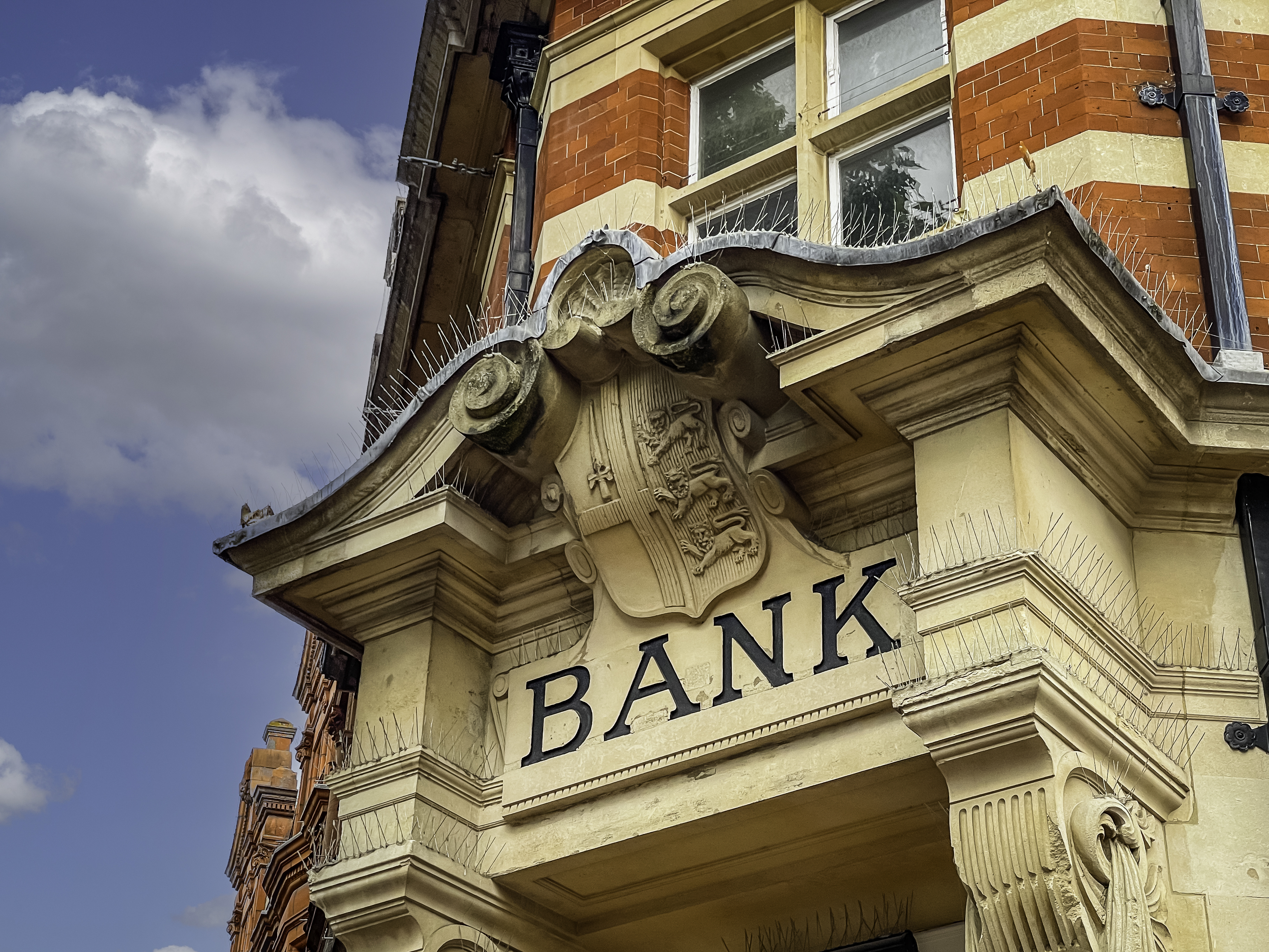Barclays is a strange beast – here's how to make it work
Barclays is a weird hybrid creature, says Matthew Lynn. But an activist-led shake-up could turn it into a decent bank.

Get the latest financial news, insights and expert analysis from our award-winning MoneyWeek team, to help you understand what really matters when it comes to your finances.
You are now subscribed
Your newsletter sign-up was successful
Want to add more newsletters?

Twice daily
MoneyWeek
Get the latest financial news, insights and expert analysis from our award-winning MoneyWeek team, to help you understand what really matters when it comes to your finances.

Four times a week
Look After My Bills
Sign up to our free money-saving newsletter, filled with the latest news and expert advice to help you find the best tips and deals for managing your bills. Start saving today!

Barclays is a weird hybrid creature. But an activist-led shake-up could turn it into a decent bank.
It has chewed its way through three chief executives in less than a decade. It has stumbled from crisis to crisis. It has milked profits from the British high street, and tried to use them to build a global financial presence but without managing to make a real success of it. It is hard to see why anyone would want to spend any money on shares in Barclays, never mind more than half a billion pounds. But activist investor Edward Bramson has done just that. He now owns more than 5% of its equity.
Time for reform
With a value of £37bn, and under close supervision by the Bank of England, Barclays is in a different league from anything Bramson has attempted before. That doesn't mean it is not a tempting target for an activist investor, however. The shares may have perked up a little since the current CEO, Jes Staley, was drafted in two years ago. But by any standards other than its own, they have still performed woefully. They are still below the level they were trading at in 2003, 15 years ago. Investors have had a miserable time.
MoneyWeek
Subscribe to MoneyWeek today and get your first six magazine issues absolutely FREE

Sign up to Money Morning
Don't miss the latest investment and personal finances news, market analysis, plus money-saving tips with our free twice-daily newsletter
Don't miss the latest investment and personal finances news, market analysis, plus money-saving tips with our free twice-daily newsletter
Nor is its management very convincing. Only last month, Barclays reported a loss of £1.9bn for 2017, hardly an inspiring result almost a decade after the financial crisis. Its management has been in constant turmoil. The hyper-energetic Bob Diamond resigned in 2012 after the bank was fined for its role in the Libor rate-rigging scandal. He was replaced by the saintly Antony Jenkins, who plastered the offices with slogans on ethics and integrity, but he was ousted in 2015 following a boardroom row over the future of the investment-banking unit.
His successor Staley has had a choppy ride so far, with the Financial Conduct Authority due to deliver a verdict on the firing of a whistle-blower on his watch. In the background, the bank may still be in trouble for its capital raising in Qatar in 2008 and for mis-selling mortgage products in the US. It is by no means guaranteed that Staley will still be there by the summer. Whatever else it might be, Barclays is clearly not a happy ship, nor a very stable one, nor indeed one with any clear sense of direction.
The real problem, however, is this: Barclays has for years now been a strange, unworkable hybrid. It is partly a UK retail bank, with its familiar high street branches a dull business, under threat from upstart web-based rivals. It is partly a global finance house, approaching the scale of HSBC, with units across the world. And it is partly an investment bank, with that unit beefed up following the acquisition of parts of the collapsed Lehman Brothers.
And yet the synergies between those different units have become less and less clear with every year that passes. Once it could recycle profits from the high street into investment banking, and use the savvy from its trading floors to improve its service to savers and small businesses back in the local branches.
It had a logic to it, even if it didn't always work as well in practice as it did in theory. But the profits from the high street aren't what they were, and trading-floor savvy has become too toxic to be of any use to anyone. The model doesn't make sense anymore. The bank is left with two main businesses that perform worse for being tied to one another than they would by themselves.
What is to be done?
If Bramson manages to get a seat on the board, here's what he should be pressing for. The bank should be completely split into two units: retail and investment banking. If any kind of reasonable offer could be secured for the investment bank, snap it up that is a murderously competitive industry where profits are often minimal. Meanwhile, the core UK retail business should be radically reinvented.
Ditch the branch network as fast as possible, reinvent the culture to make it genuinely customer-friendly, and invest heavily in financial technology to compete with the challenger banks and the app-based start-ups. There is a huge space for a decently run bank in the UK. Barclays could still take it.
Get the latest financial news, insights and expert analysis from our award-winning MoneyWeek team, to help you understand what really matters when it comes to your finances.

Matthew Lynn is a columnist for Bloomberg and writes weekly commentary syndicated in papers such as the Daily Telegraph, Die Welt, the Sydney Morning Herald, the South China Morning Post and the Miami Herald. He is also an associate editor of Spectator Business, and a regular contributor to The Spectator. Before that, he worked for the business section of the Sunday Times for ten years.
-
 Early signs of the AI apocalypse?
Early signs of the AI apocalypse?Uncertainty is rife as investors question what the impact of AI will be.
-
 Reach for the stars to boost Britain's space industry
Reach for the stars to boost Britain's space industryopinion We can’t afford to neglect Britain's space industry. Unfortunately, the government is taking completely the wrong approach, says Matthew Lynn
-
 FCA tells banks to speed up savings rate increases
FCA tells banks to speed up savings rate increasesRecord profits and low savings rates spurred the FCA to meet with some of the UK’s top banks.
-
 The best ways to hire staff in these uncertain times
The best ways to hire staff in these uncertain timesAdvice Taking on permanent staff for your business comes with risks, but there are alternatives says David Prosser.
-
Money Minute Friday 25 October: Banking results and German sentiment
Features Today's Money Minute looks at third-quarter results from Barclays bank and advertising giant WPP, plus German consumer and business sentiment.
-
 Barclays goes on trial
Barclays goes on trialFeatures Four former banking executives have been charged with fraud over the bailout of Barclays by Qatar in 2008. Will the trial really be in the public interest? Simon Wilson reports.
-
Barclays’ snooping scandal
Features Jes Staley, Barclays’ chief executive, tried to unmask the identity of a whistleblower. Bad move, says Ben Judge.
-
Is the gold market rigged?
Features Barclays has been fined £26m after one of its traders manipulated the gold fix. Is it time to overhaul the price-fix system and what are the alternatives? Simon Wilson investigates.